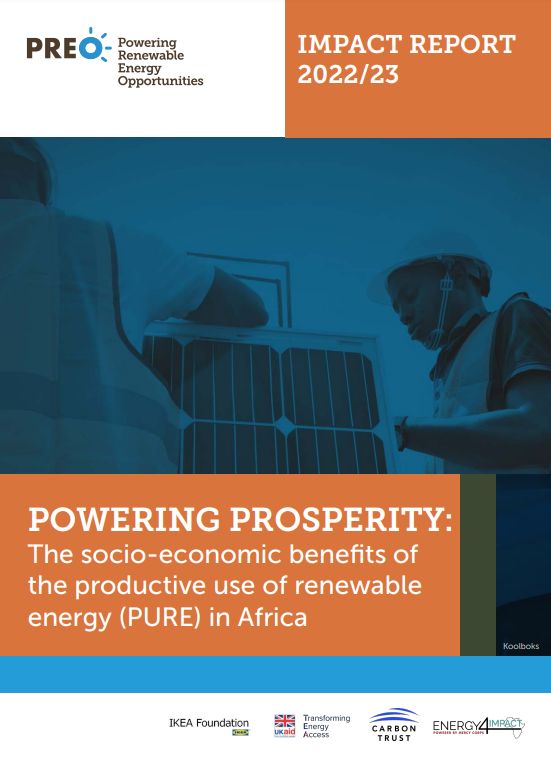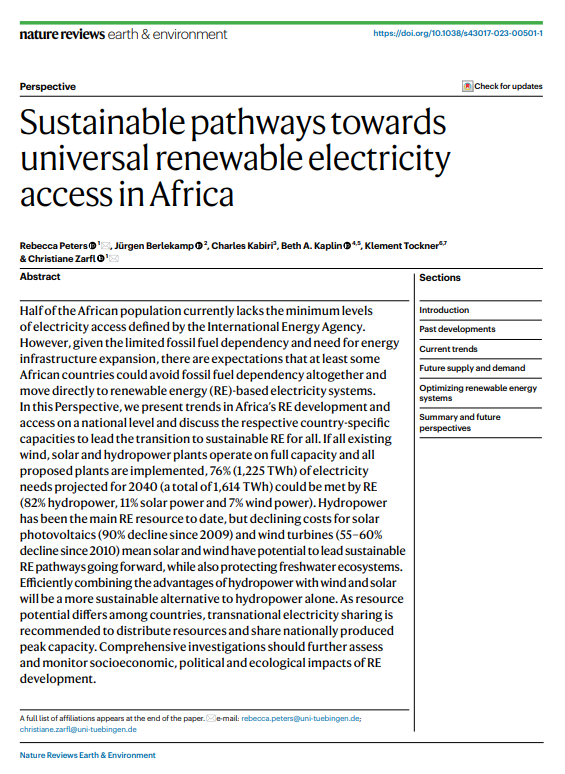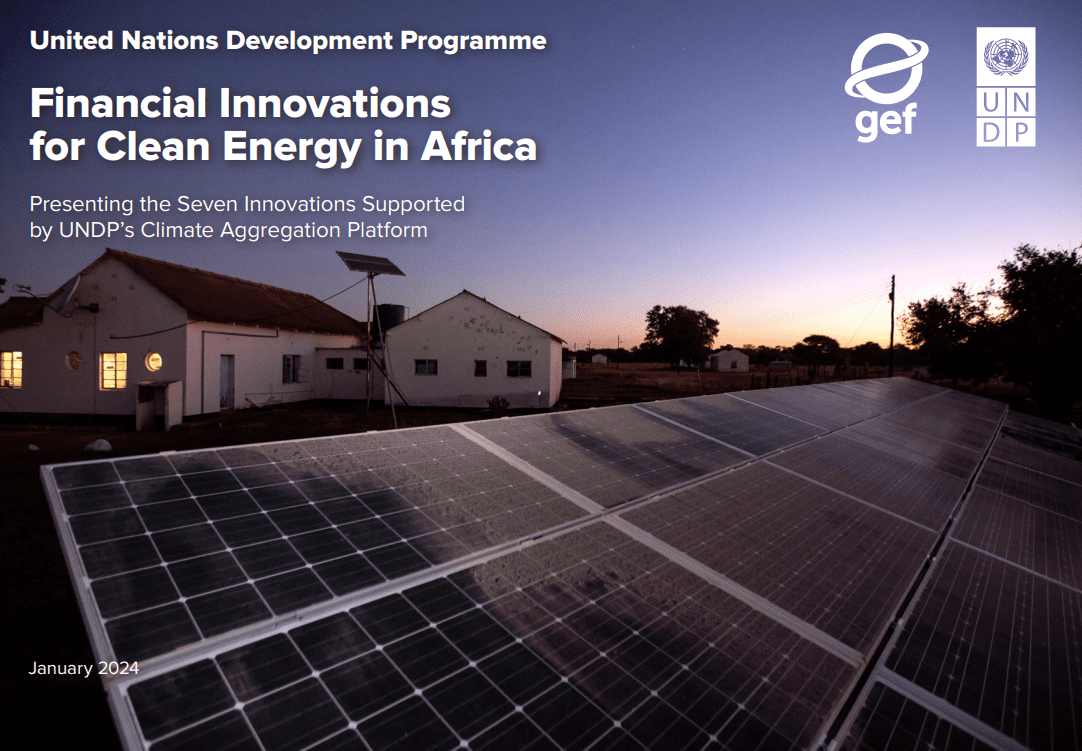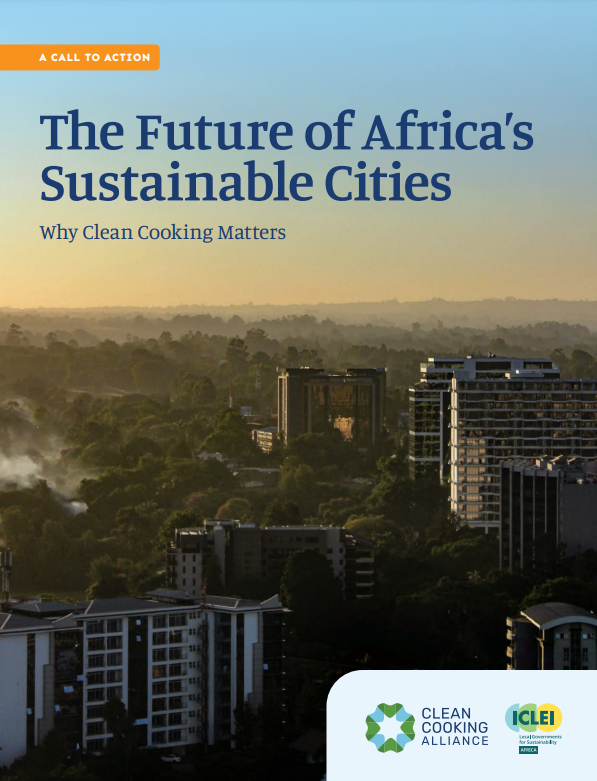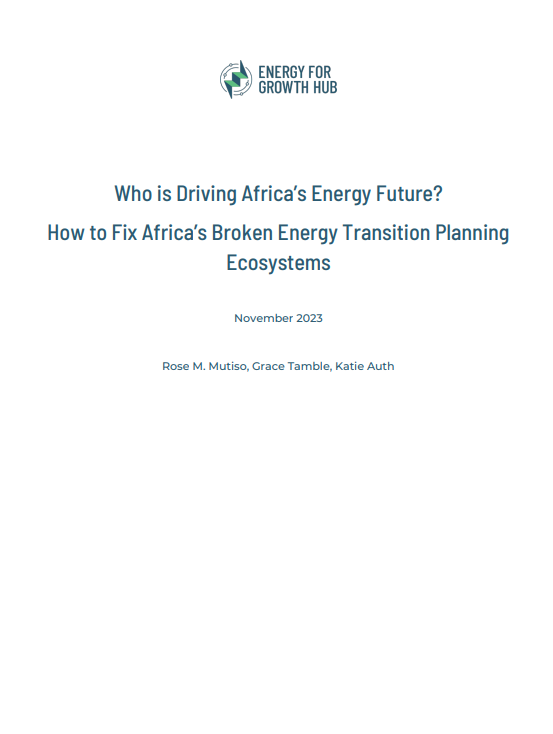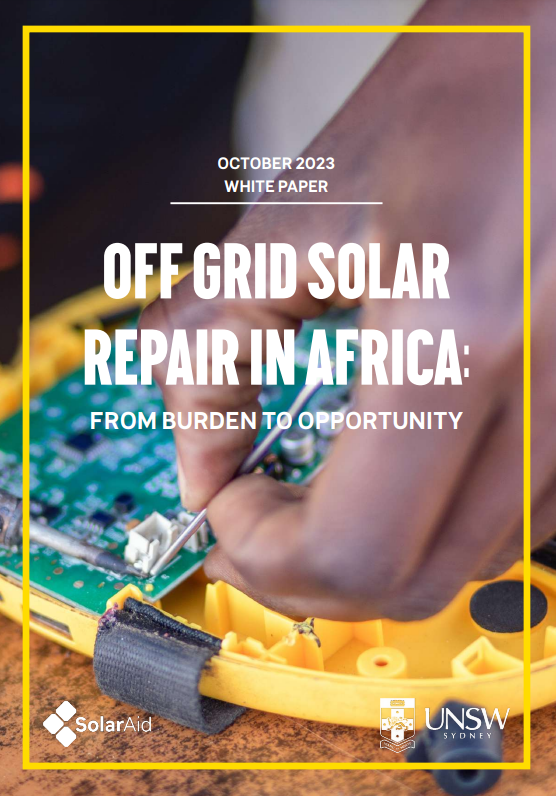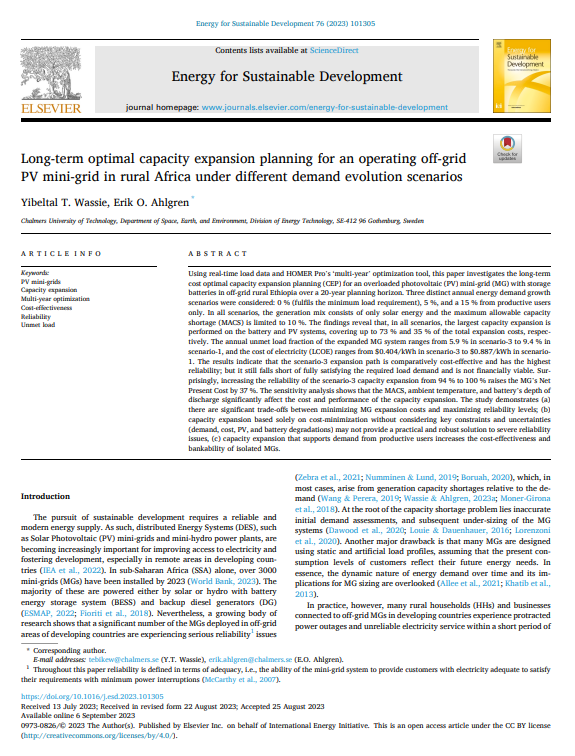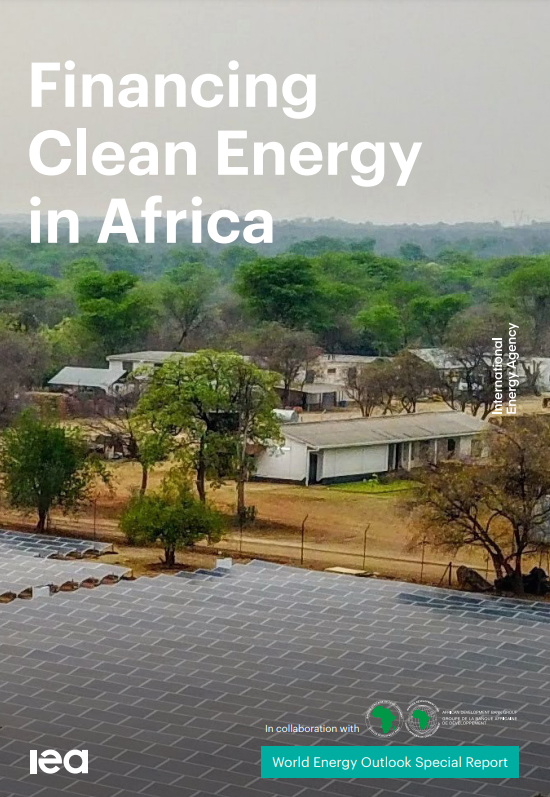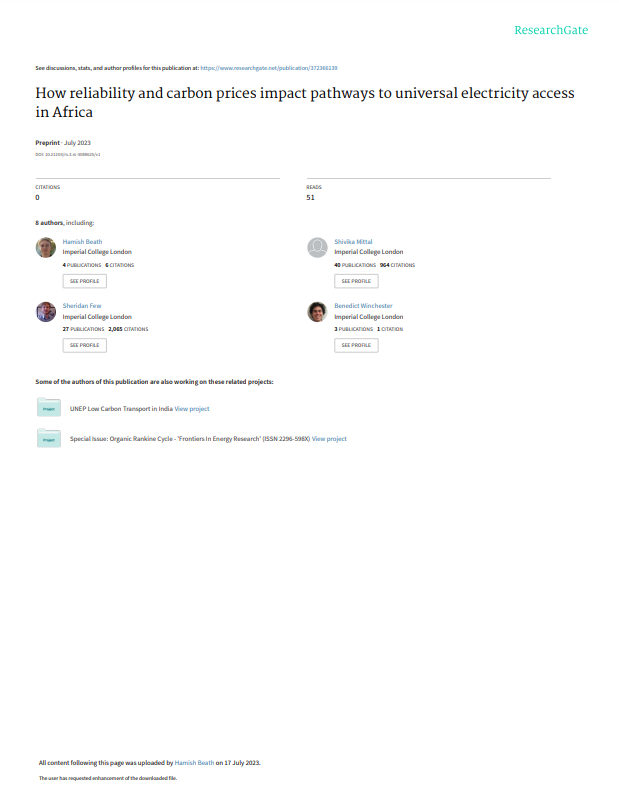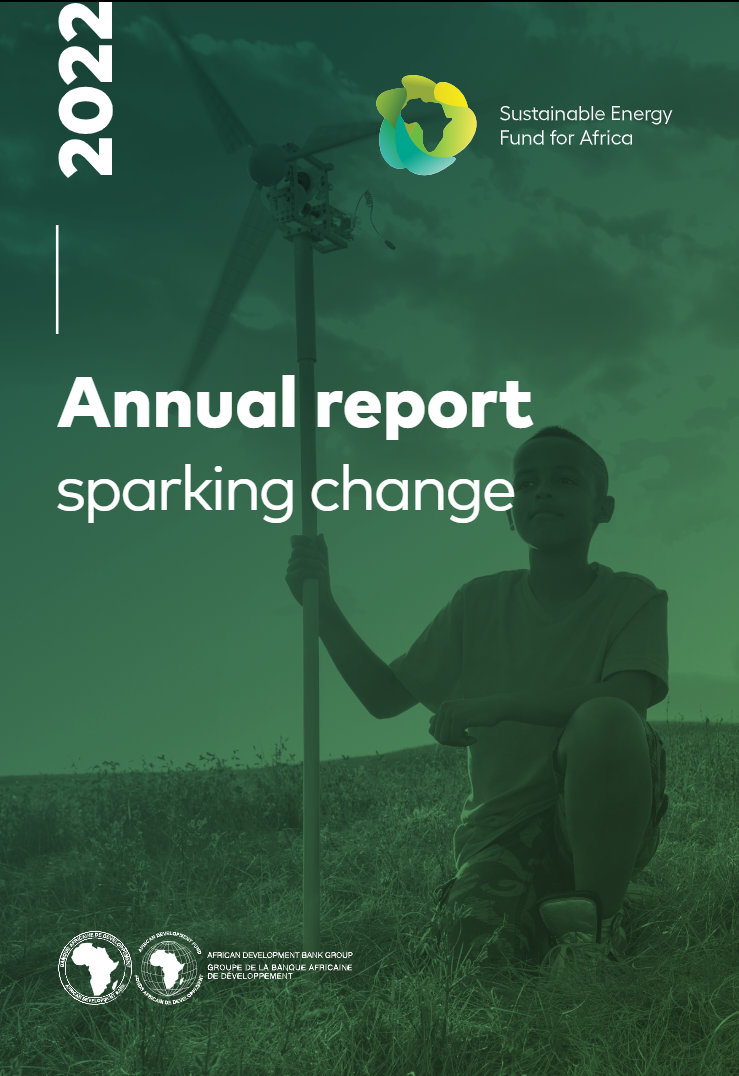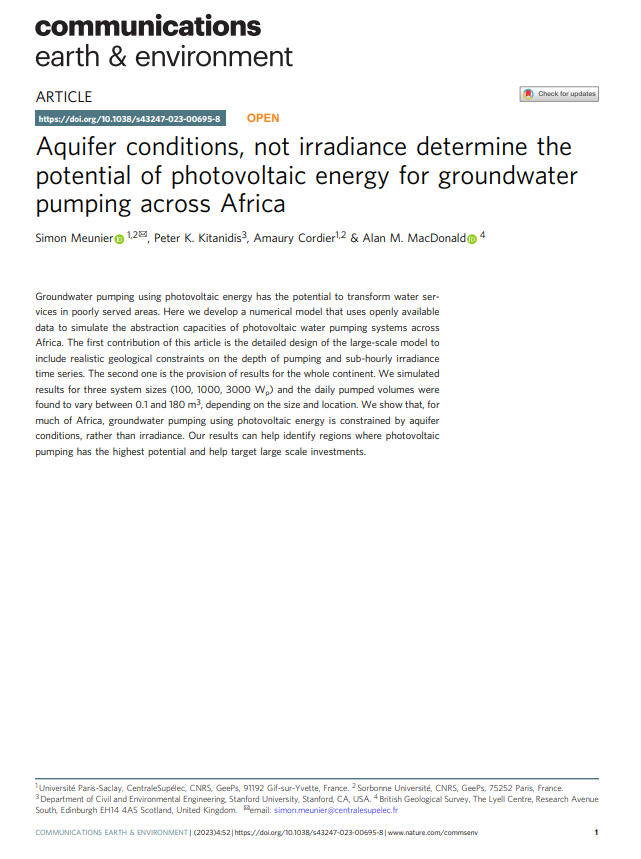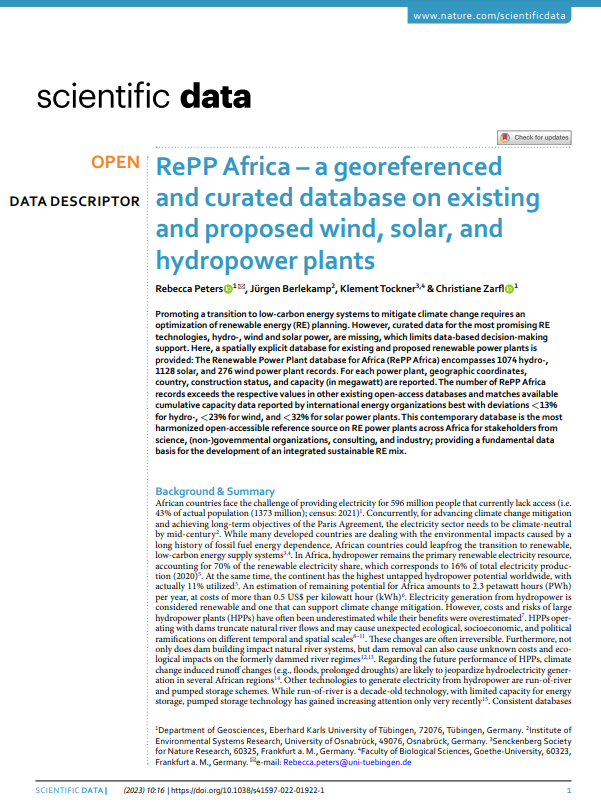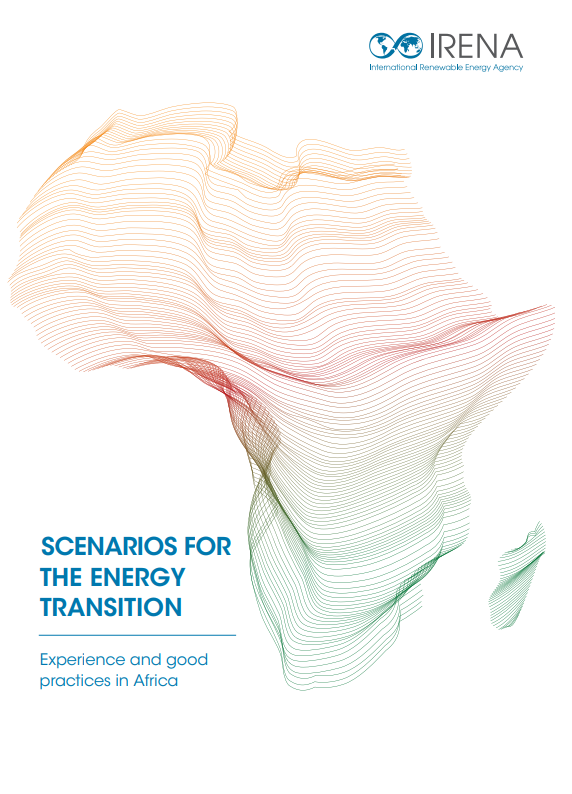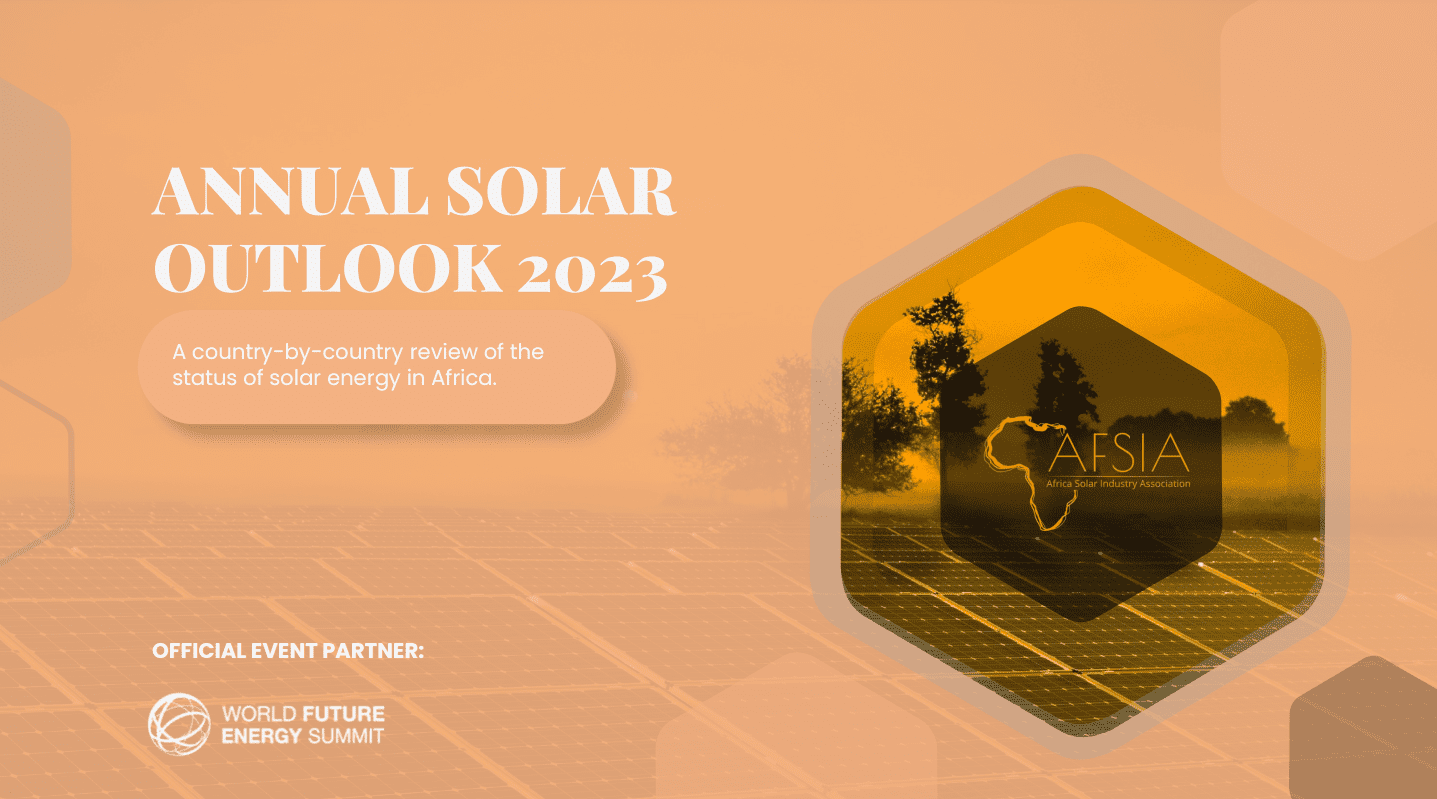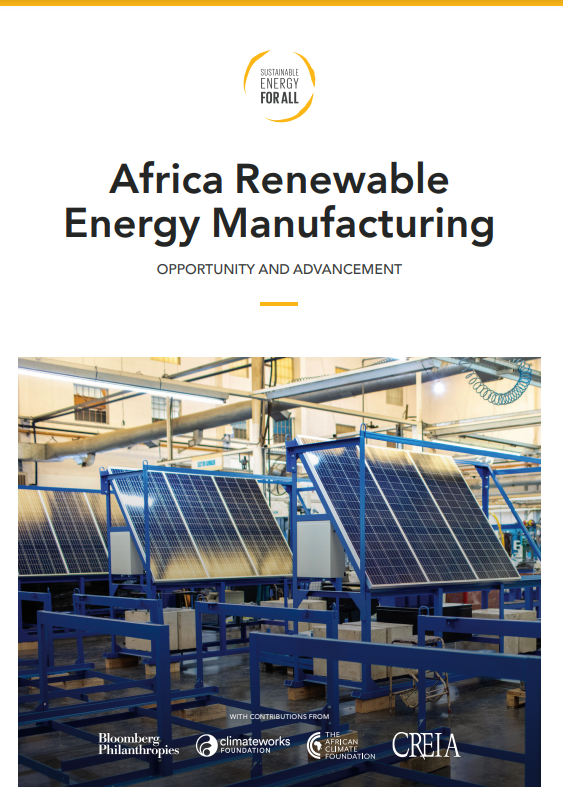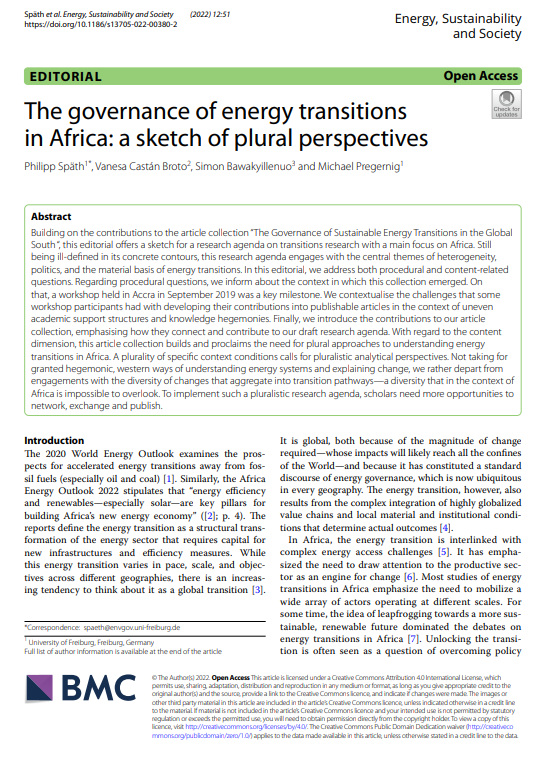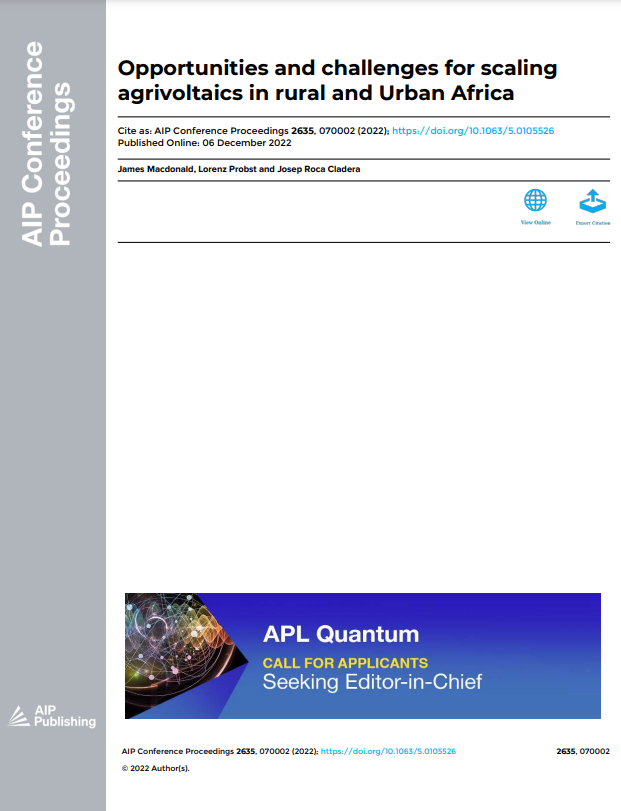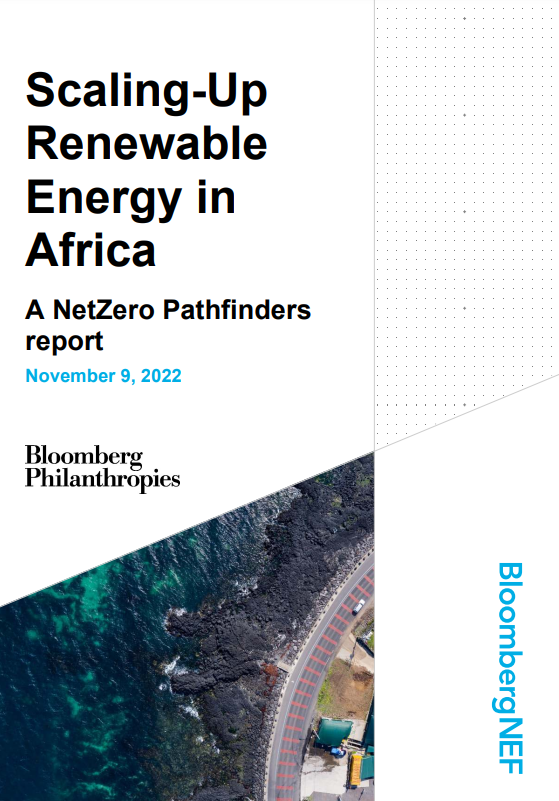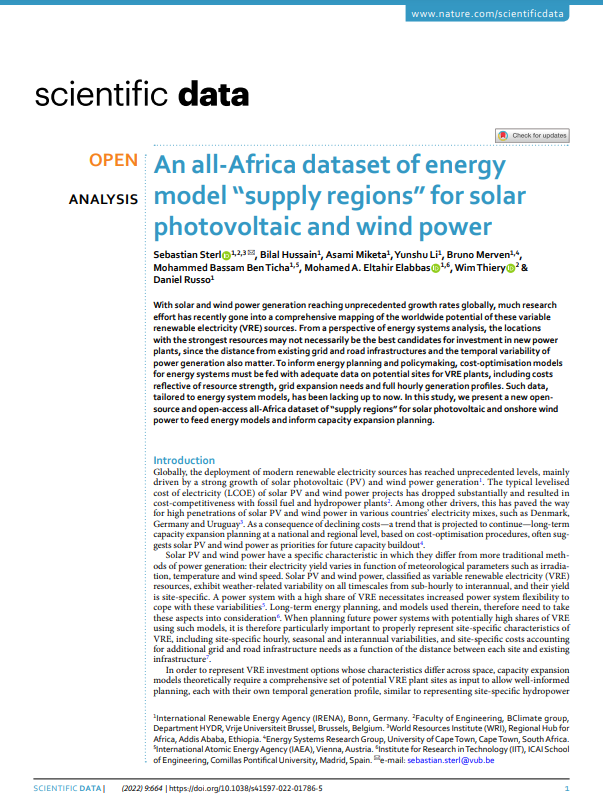We post here the relevant reports for the power sector in Africa. Feel free to join our efforts and share us any other you may have found. We'd be glad to add them to the list. Just sent an email to This email address is being protected from spambots. You need JavaScript enabled to view it.
Browse by Region:
Publication date: 22 February 2024
Authors: PREO
Description: The productive use of renewable energy (PURE) market opportunity in rural sub-Saharan Africa is estimated to be worth $864 billion up to 2030. The PREO Impact Report 2022/23 explores the latest impact insights from the PREO programme, demonstrating the socio-economic benefits of investing in revenue and income-generating products and services in Africa.
Download Report >>
Visit Website >>
Publication date: 16 January 2024
Authors: Nature Reviews Earth & Environment
Description: Half of the African population currently lacks the minimum levels of electricity access defined by the International Energy Agency. However, given the limited fossil fuel dependency and need for energy infrastructure expansion, there are expectations that at least some African countries could avoid fossil fuel dependency altogether and move directly to renewable energy (RE)-based electricity systems. In this Perspective, we present trends in Africa’s RE development and access on a national level and discuss the respective country-specific capacities to lead the transition to sustainable RE for all. If all existing wind, solar and hydropower plants operate on full capacity and all proposed plants are implemented, 76% (1,225 TWh) of electricity needs projected for 2040 (a total of 1,614 TWh) could be met by RE (82% hydropower, 11% solar power and 7% wind power). Hydropower has been the main RE resource to date, but declining costs for solar photovoltaics (90% decline since 2009) and wind turbines (55–60% decline since 2010) mean solar and wind have potential to lead sustainable RE pathways going forward, while also protecting freshwater ecosystems. Efficiently combining the advantages of hydropower with wind and solar will be a more sustainable alternative to hydropower alone. As resource potential differs among countries, transnational electricity sharing is recommended to distribute resources and share nationally produced peak capacity. Comprehensive investigations should further assess and monitor socioeconomic, political and ecological impacts of RE development.
Download Report >>
Visit Website >>
Publication date: January 2024
Authors: UNDP / GEF
Description: The "Financial Innovations for Clean Energy in Africa" summary report, part of the UNDP's Climate Aggregation Platform (CAP) report series published on January 26, 2024, provides an overview of the seven financial innovations that were competitively selected and supported by the CAP Innovation Challenge.
Highlighting seven cutting-edge financial models, the report showcases the CAP's efforts to foster the development of innovative financial models for DRE sector, to unlock new sources of capital and climate finance. These innovations aim to increase financing availability, reduce costs for clean energy projects, and ensure clean, reliable, and affordable energy access for all. The models target different sub-sectors, from off-grid and on-grid solar, mini-grids, productive use appliances and e-mobility to clean cooking and could be deployed across different countries in East Africa.
Download Report >>
Visit Website >>
Publication date: 1 December 2023
Authors: Clean Cooking Alliance, ICLEI
Description: African governments and city leaders are grappling with the complex challenges of climate change, pollution, nature loss, energy poverty, and inequality in rapidly growing cities across the continent. Prioritizing clean cooking can deliver a range of benefits across these critical focus areas and is essential for a just energy transition.
“The Future of Africa’s Sustainable Cities: Why Clean Cooking Matters” highlights the critical role that clean cooking must play in ensuring sustainable and equitable urban growth, with a particular focus on the fast-growing cities of sub-Saharan Africa.
Download Report >>
Visit Website >>
Publication date: 27 November 2023
Authors: Carnegie Endowment for International Peace
Description: Public and private energy finance to Africa from countries in the Group of Twenty (G20) and multilateral development banks (MDBs) from 2012 to 2021 totaled $345.76 billion, according to this paper’s findings. Amounting to an average of about $35 billion per year, this finance was within the estimated $31.5–$45 billion range necessary to address Africa’s annual energy finance gap. However, it was distributed unevenly, with ten countries receiving 77 percent of all finance over the ten-year period. Some inequity may be a consequence of differing domestic energy demands, investment environments, or natural resource endowments across countries. However, the resulting distribution of energy finance over the past decade was such that many African countries—home to hundreds of millions of people—were left with substantial gaps in their financing necessities.
Download Report >>
Visit Website >>
Publication date: 22 November 2023
Authors: Rose M. Mutiso, Grace Tamble, Katie Auth
Description: African energy transitions will be critical to the world’s climate and economic future — and will shape opportunities, livelihoods, health, and educational outcomes across the continent. Planning those transitions is a monumental task, requiring countries to build energy systems that consider social, economic, and environmental goals — as well as locally-specific political windows, trade-offs, and liabilities. Yet, all too often, the analysis and energy systems modeling that drives energy planning across the continent and in global fora is not being led by African institutions or researchers, or even commissioned by African governments. This results in energy plans and targets that lack local relevance, credibility, and impact — impeding the actual work from getting done.
Download Report >>
Visit Website >>
Publication date: 11 October 2023
Author: SolarAid
Description: Off-grid solar repair in Africa: from burden to opportunity is a white paper written by the University of New South Wales and SolarAid.
This white paper aims to share knowledge and learnings to facilitate replication of their successful repair pilot across the continent. It explores the potential for solar energy kit (SEK) repair in Africa as an opportunity to combat the growing problem of e-waste while extending the life of solar products and building local markets.
Download Report >>
Visit Website >>
Publication date: October 2023
Author: Elsevier
Description: Using real-time load data and HOMER Pro's ‘multi-year’ optimization tool, this paper investigates the long-term cost optimal capacity expansion planning (CEP) for an overloaded photovoltaic (PV) mini-grid (MG) with storage batteries in off-grid rural Ethiopia over a 20-year planning horizon. Three distinct annual energy demand growth scenarios were considered: 0% (fulfils the minimum load requirement), 5%, and a 15% from productive users only. In all scenarios, the generation mix consists of only solar energy and the maximum allowable capacity shortage (MACS) is limited to 10%. The findings reveal that, in all scenarios, the largest capacity expansion is performed on the battery and PV systems, covering up to 73% and 35% of the total expansion costs, respectively.
Download Report >>
Visit Website >>
Publication date: September 2023
Author: IEA
Description: Although Africa accounts for one-fifth of the global population, the region currently attracts only 3% of global energy investment. By 2030, energy investment needs to double to over USD 200 billion per year, in order for African countries to achieve all their energy-related development goals, including universal access to modern energy, while meeting in time and in full their nationally determined contributions.
Download Report >>
Visit Website >>
Publication date: 14 July 2023
Author: ResearchGate
Description: Off-grid PV systems have been proposed as a panacea for economies with poor electricity access, offering a lower-cost “leapfrog” over grid infrastructure used in higher-income economies. Previous research examining pathways to electricity access may understate the role of off-grid PV as it has not considered reliability and carbon pricing impacts. We perform high-resolution geospatial analysis on universal household electricity access in Sub-Saharan Africa that includes these aspects via least-cost pathways at different electricity demand levels. Under our "Tier 3" demand reference scenario, 24% of our study’s 470 million people obtaining electricity access by 2030 do so via off-grid PV. A penalty for unmet demand (0.50 $/kWh) increases this share to 41% and applying a carbon price (around $80/tonne CO2-eq) increases it to 38%. We identify thresholds for policy effectiveness in different regions and highlight the high degree of spatial heterogeneity and the areas where policy intervention may be most effective.
Download Report >>
Visit Website >>
Publication date: 14 June 2023
Author: African Development Bank Group
Description: SEFA 2.0 continued its momentum in 2022, unlocking private sector-led renewable energy and energy efficiency projects across the African continent, despite new challenges arising from Russia’s invasion of Ukraine as well as extreme climate events such as droughts and hurricanes in various parts of the continent.
Visit Website >>
Publication date: 27 February 2023
Author: Springer Nature
Description: Groundwater pumping using photovoltaic energy has the potential to transform water services in poorly served areas. Here we develop a numerical model that uses openly available data to simulate the abstraction capacities of photovoltaic water pumping systems across Africa. The first contribution of this article is the detailed design of the large-scale model to include realistic geological constraints on the depth of pumping and sub-hourly irradiance time series.
Download Report >>
Visit Website >>
Publication date: 6 January 2023
Author: Springer Nature
Description: Promoting a transition to low-carbon energy systems to mitigate climate change requires an optimization of renewable energy (RE) planning. However, curated data for the most promising RE technologies, hydro-, wind and solar power, are missing, which limits data-based decision-making support. Here, a spatially explicit database for existing and proposed renewable power plants is provided: The Renewable Power Plant database for Africa (RePP Africa) encompasses 1074 hydro-, 1128 solar, and 276 wind power plant records. For each power plant, geographic coordinates, country, construction status, and capacity (in megawatt) are reported.
Download Report >>
Visit Website >>
Publication date: January 2023
Author: IRENA
Description: African nations use long-term scenarios and energy planning tools to inform national planning. When the right institutional framework is in place, countries can assess alternative pathways to ensure energy access for all, mainstream the use of large- and small-scale renewables, and advance toward a just and sustainable energy system, while building consensus on the desired energy future.
Download Report >>
Visit Website >>
Publication date: 2023
Author: AFSIA
Description: AFSIA’s annual Africa Solar Outlook report is the most complete review of the status of solar in Africa, country by country.
Each country is presented through different angles: national solar and renewable energy objectives, current grid tariffs per customer segment, installed PV capacity per segment, all applicable policy and regulation, and finally notable market developments in the country.
Visit Website >>
Publication date: 2023
Author: SEforALL
Description: This report, by Sustainable Energy for All, supported by Bloomberg Philanthropies, ClimateWorks Foundation, African Climate Foundation and Chinese Renewable Energy Industries Association, has assessed the potential of renewable energy in Africa and creates a roadmap for African countries to localize manufacturing. The report draws on multiple sources, including economic analysis from McKinsey & Company.
Download Report >>
Visit Website >>
Publication date: 28 December 2022
Author: Energy, Sustainability and Society
Description: Building on the contributions to the article collection “The Governance of Sustainable Energy Transitions in the Global South “, this editorial offers a sketch for a research agenda on transitions research with a main focus on Africa. Still being ill-defined in its concrete contours, this research agenda engages with the central themes of heterogeneity, politics, and the material basis of energy transitions.
Download Report >>
Visit Website >>
Publication date: 6 December 2022
Author: AIP Conference Proceedings
Description: Crop Area Integrated Photovoltaics (CAIPV) systems yield electricity and crops on the same area of land. Most CAIPV research and commercial activity over the last decade has taken place in temperate countries of the Global North; activity in Africa has been comparatively very limited. Depending on several factors, the shade from the PV arrays may cause crop yields to decrease, increase, or remain close to control. It is expected that yields of many crops would increase on sunny arid sites in Africa.
Download Report >>
Visit Website >>
Publication date: 9 November 2022
Author: Bloomberg Finance
Description: The ongoing global transition from high to low carbon emitting sources of energy has the potential to transform Africa: mass deployment of new, low-cost clean technologies should trigger billions in investment, expand energy access to millions, and help mitigate the worst effects of climate change. Despite the continent’s abundant natural resources that make clean power the least-cost option today, it has reaped limited benefits from the energy transition. In fact, in 2021, Africa’s clean energy investment fell to its the lowest level since 2011 – of the $434 billion invested globally to build wind, solar, and other clean power projects, only 0.6% or $2.6 billion, went to Africa.
Download Report >>
Visit Website >>
Publication date: 31 October 2022
Author: Springer Nature
Description: With solar and wind power generation reaching unprecedented growth rates globally, much research effort has recently gone into a comprehensive mapping of the worldwide potential of these variable renewable electricity (VRE) sources. From a perspective of energy systems analysis, the locations with the strongest resources may not necessarily be the best candidates for investment in new power plants, since the distance from existing grid and road infrastructures and the temporal variability of power generation also matter.
Download Report >>
Visit Website >>





